Sign up to our mailing list for the best stories delivered to your inbox.
Carol Mudford, a former Graziher cover star, is the national winner of the AgriFutures Australia Rural Women’s Award. She talks to us about the transition from nurse to shearer.
Words and photography Alexandra MacAlpine
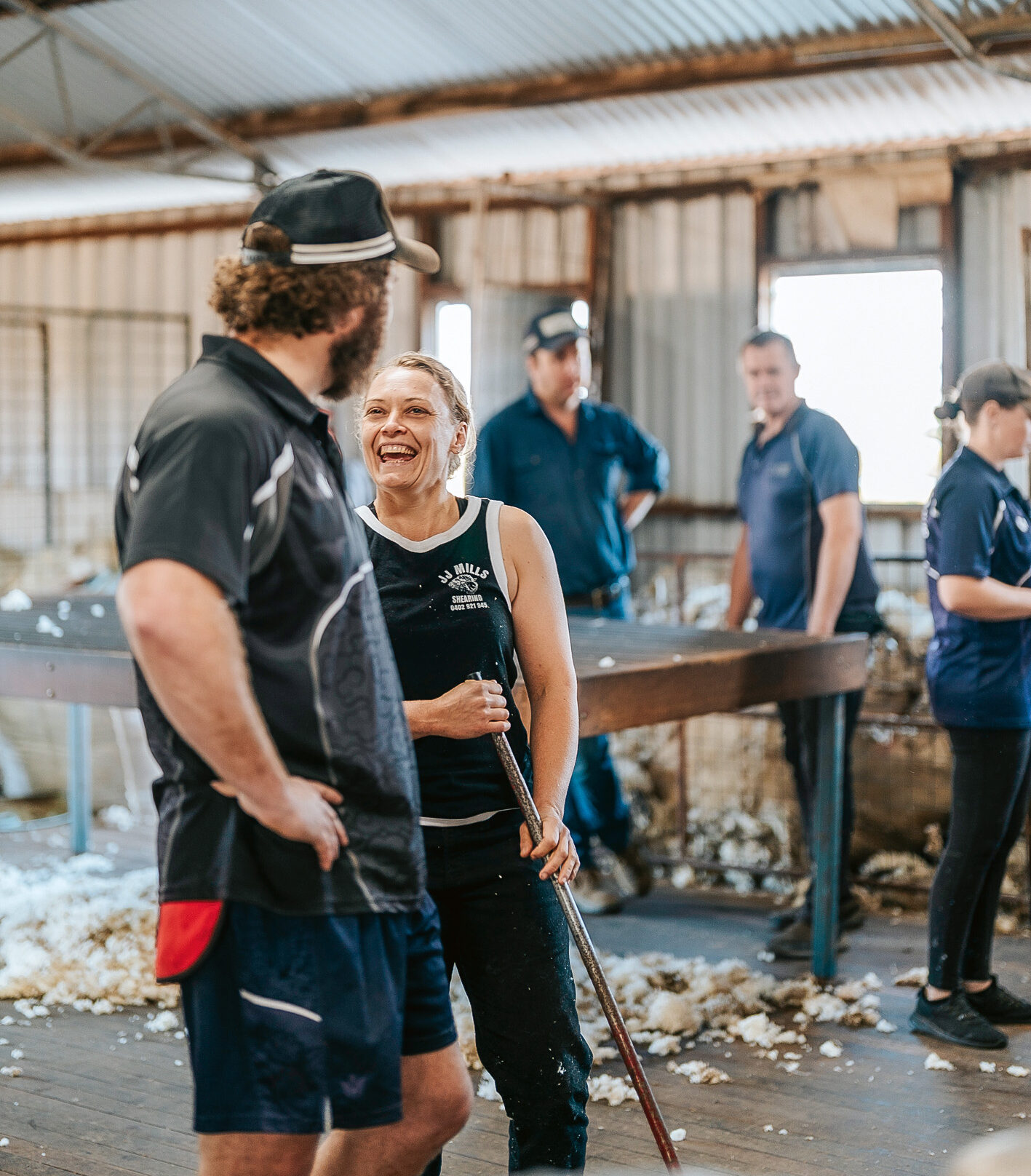
A big congratulations to Carol Mudford of Dubbo, New South Wales, who has just been named the 2025 AgriFutures Australia Rural Women’s Award National Winner at a gala event at Parliament House. The shearer, nurse and Graziher cover star (Issue 45) has been acknowledged for her work in promoting mental health awareness in the woolshed. Isabella Thrupp, founder of workwear label Prinking In Pindan, was named national runner-up.
Applications for the 2026 AgriFutures Rural Women’s Awards and acceleration grant close on November 7, 2025. If you know someone who is making a difference in Australia’s rural industries, businesses and/or communities, then AgriFutures wants to hear from you.
To celebrate Carol’s win, we’re sharing the cover story that ran in Issue 45. For more on Carol’s journey, you can also listen to Life on the Land, where she talks with podcast host Emily Herbert.
Just a heads-up: this article discusses suicide. If you — or someone you know — needs help, Lifeline is available 24/7. The number to call is 13 11 14.
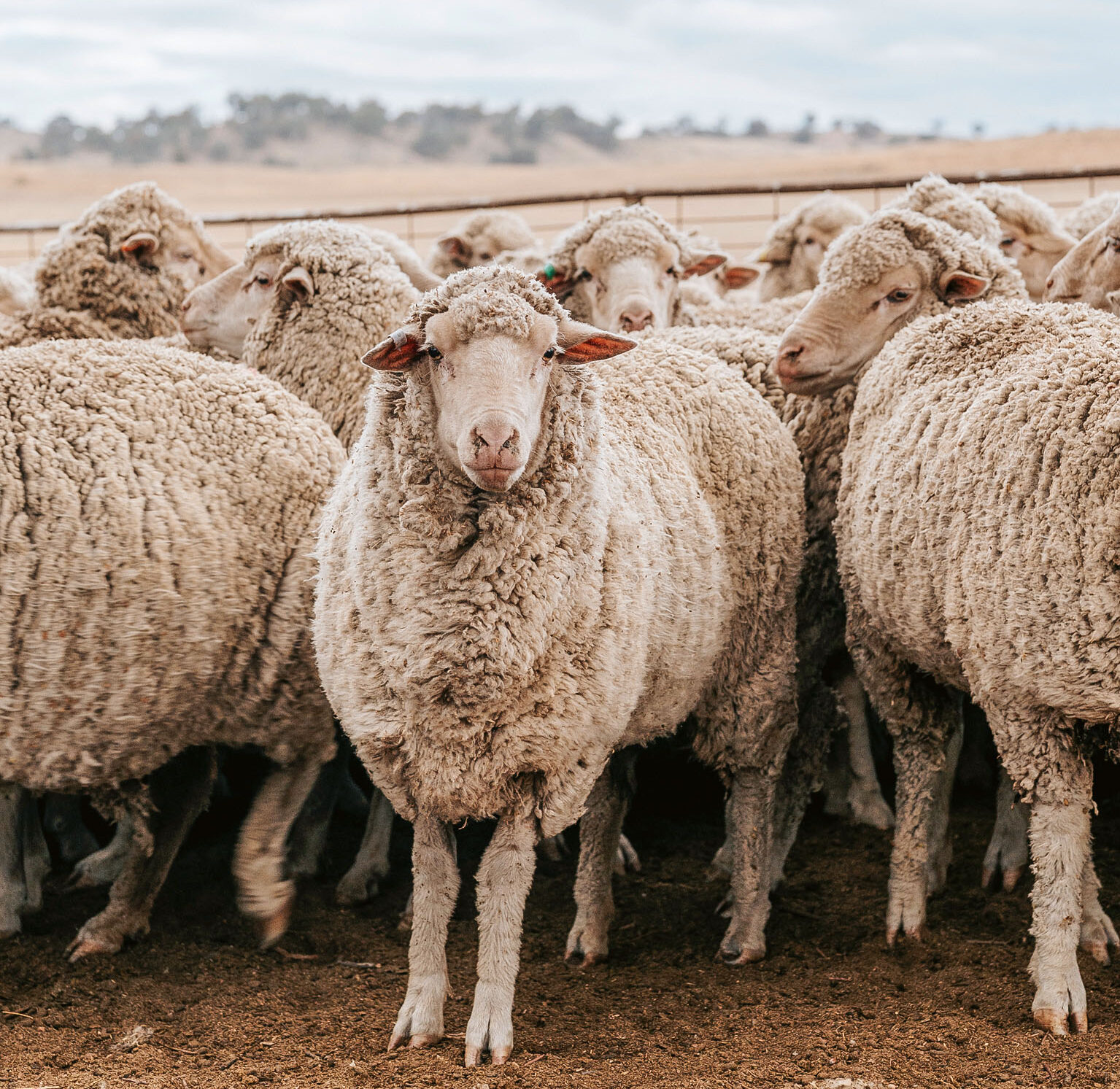
The dull morning light is yet to make much impact through the thick cloud cover and the chilly morning air makes Carol shiver, so she grabs a black hooded jumper and pulls it over her shearing singlet. The words ‘Guyra Silver Shears, Intermediate Finalist’ cross her front and back. She bunches up the sleeves, grabs her shearing bucket and walks towards the shed. Her bucket is plastered with stickers, some more faded than others. The most identifiable is green and emblazoned with the logo ‘sHedway’, an organisation Carol founded that aims for suicide prevention and positive mental health for Australia’s shearers, rouseabouts, wool classers and handlers.
The 39-year-old has fond memories of shearing sheds. She was raised on Curban Plains north of Gilgandra, New South Wales; then, at age eight, Carol and her family (her mother, Nina, father, Max, and two younger brothers, John and Mark) left the property for north-east Victoria, where she completed the remainder of her schooling. She spent holidays helping her father, who had returned to Kirban, not far from Curban Plains.
After leaving school in 2004, Carol did a performing arts degree and travelled around Australia before returning to Victoria, where she volunteered as a leader for Mittagundi, an outdoor education centre and working farm — with adventure activities for young people aged 14 to 17 — in the Glen Valley.
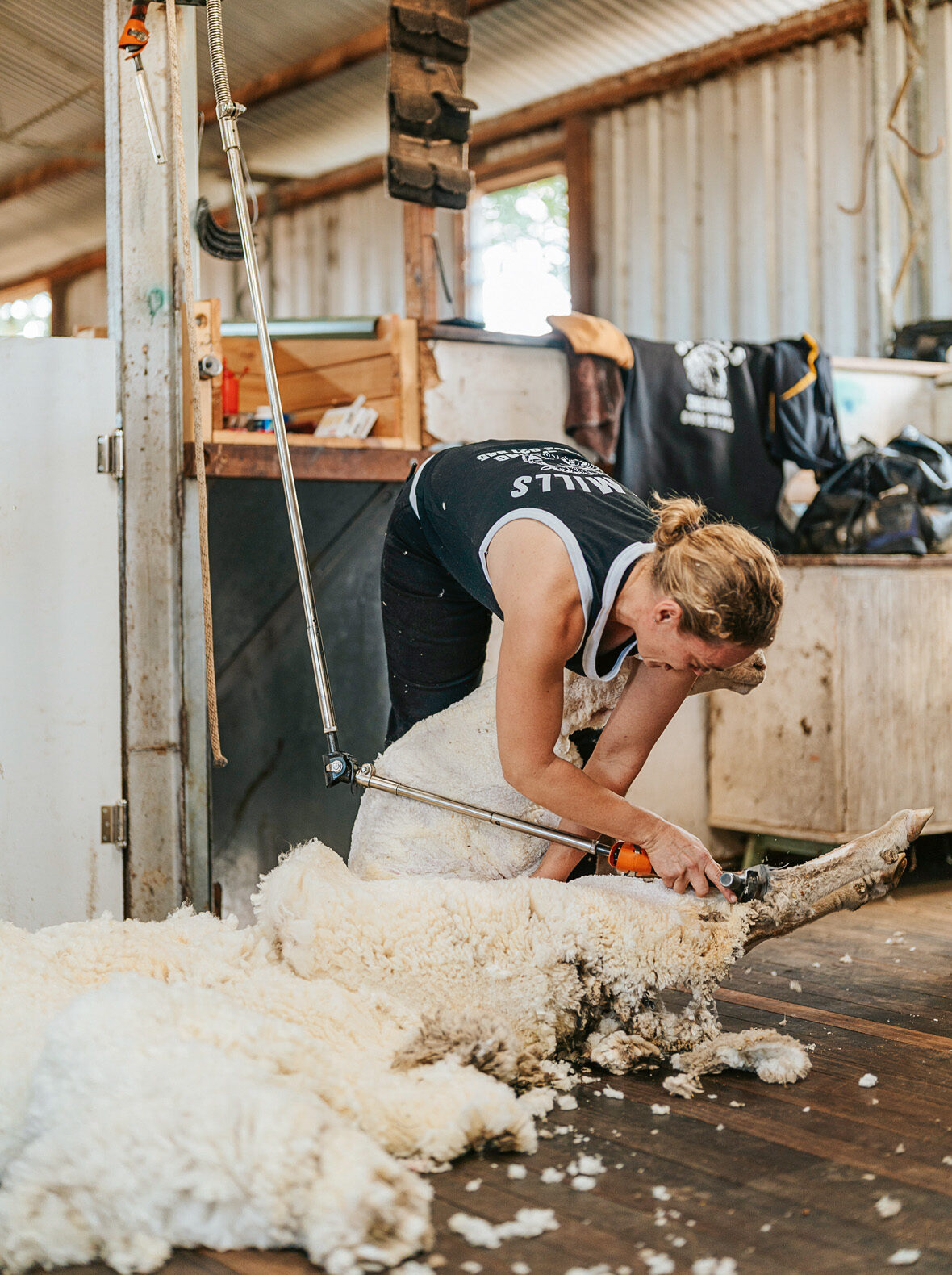
She completed a Bachelor of Nursing at Charles Sturt University in Albury and landed a job at Royal Darwin Hospital, spending four years working in emergency nursing in Darwin and Alice Springs. Carol then worked for Aboriginal Medical Services providing parenting support for first-time mums in Ntaria, also known as Hermannsburg, a remote Aboriginal community 130 kilometres west of Alice Springs, on the traditional lands of the Western Arrernte people.
Carol stepped away from nursing in 2020. Her father, who still lived on Kirban, was terminally ill, and she returned to the farm to help him and her brothers, John, now 38, and Mark, 34.
“Covid was a blessing in disguise for me. The lockdowns meant I was able to take the time I needed for my mental health. It also meant that my brothers and I could spend precious time with Dad, who passed away that August. A lot of good came out of the bad in that time.”
While she was home, Carol started working as a rouseabout for her cousin, Steven ‘Muddy’ Mudford, a shearing contractor based out of Dubbo.
When an Australian Wool Innovation (AWI) Novice Shearing School was held in 2021 at Haddon Rig merino stud, just outside of Warren, Carol signed up. For 18 months, she travelled far and wide across New South Wales, shearing from Lightning Ridge to Forbes. Many kilometres were spent on the road.
“You spend a lot of time thinking when you’re driving for hours to get to a shed. Smoko, lunchbreak, sitting around the campfire, they were good times to talk about what you may have been thinking,” says Carol. “There were serious challenges we were all facing in the sheds. I just kept thinking someone needs to do something to address mental health.
“I had been out of nursing for a couple of years, but I didn’t want to lose my registration,” explains Carol. “Shearing full time was hard on the body and I knew that I needed to give myself a break.” She started a job as a mental health nurse for a suicide prevention program, providing one-on-one counselling for people at risk of suicide in rural areas.
In November 2023, a month after Carol had started her work as a mental health nurse, she heard that three shearers had lost their lives to suicide. Carol knew one of them well.
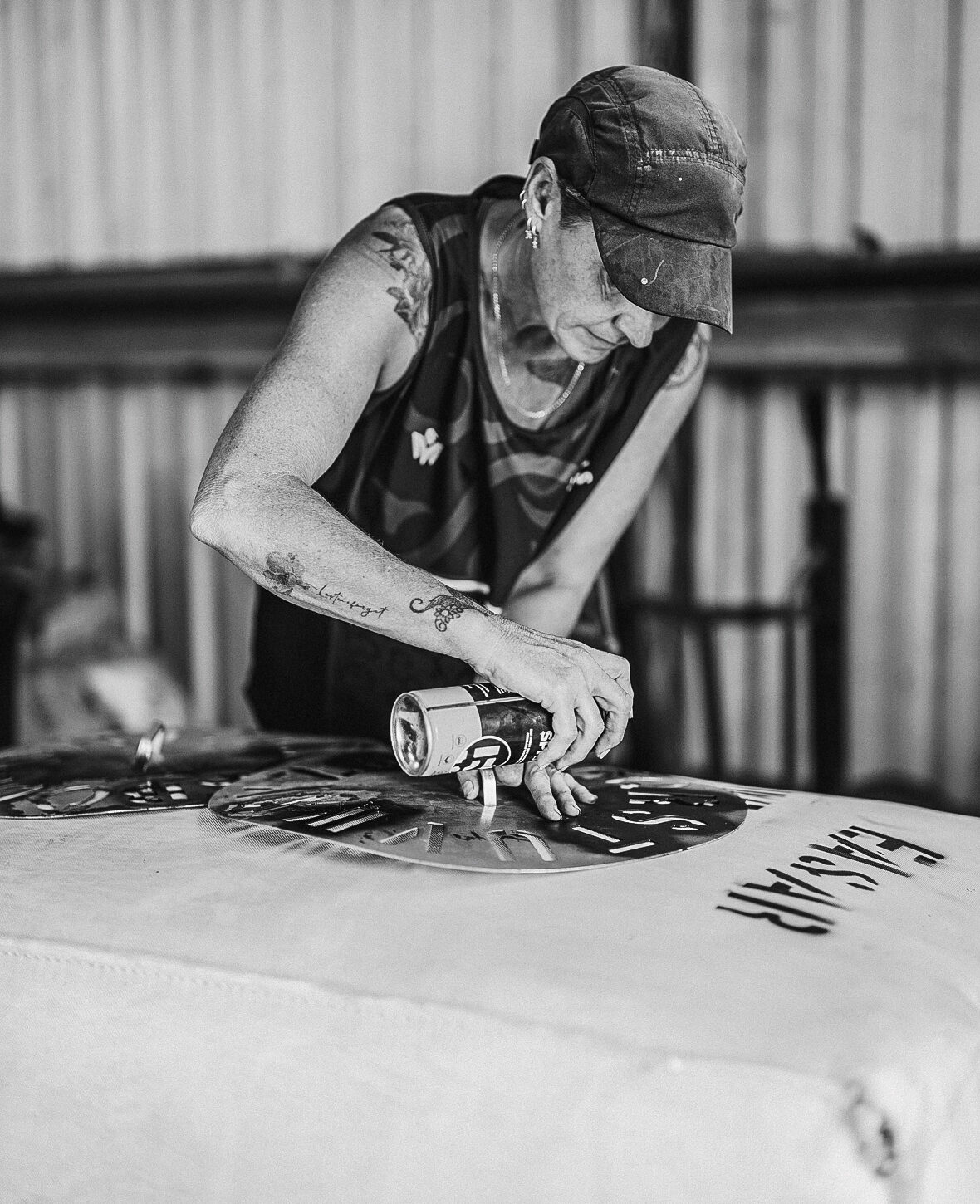
Carol pauses as she reflects on that time. “It just really hit me hard. I was in this role working to prevent suicide, but I still had calluses on my hand from shearing. I was helping people, but at the same time I wasn’t helping those I had spent so much time in the sheds with.”
It was a catalyst. “I wanted to start making it normal to talk about mental health in the sheds and give people the skills to recognise when someone might be struggling,” Carol explains. She started setting up sHedway stalls at as many wool and shearing events as possible, including ag shows and competitions.
“I thought it would take years for sHedway to build awareness and get people involved,” adds Carol. “I seriously underestimated: everyone was so supportive.” In one year, sHedway’s Facebook page gained over a thousand followers and Carol and her group of 10 volunteers attended 42 events in 46 weeks.
“I resigned from my role as a mental health nurse in October 2024. I knew if I wanted to do what needed to be done for sHedway, I had to invest more of my time into it.” Carol now splits her time between sHedway and working as a rouseabout and shearer. “It took me a little while to build my fitness back for shearing,” she explains, “but it’s been really great.”
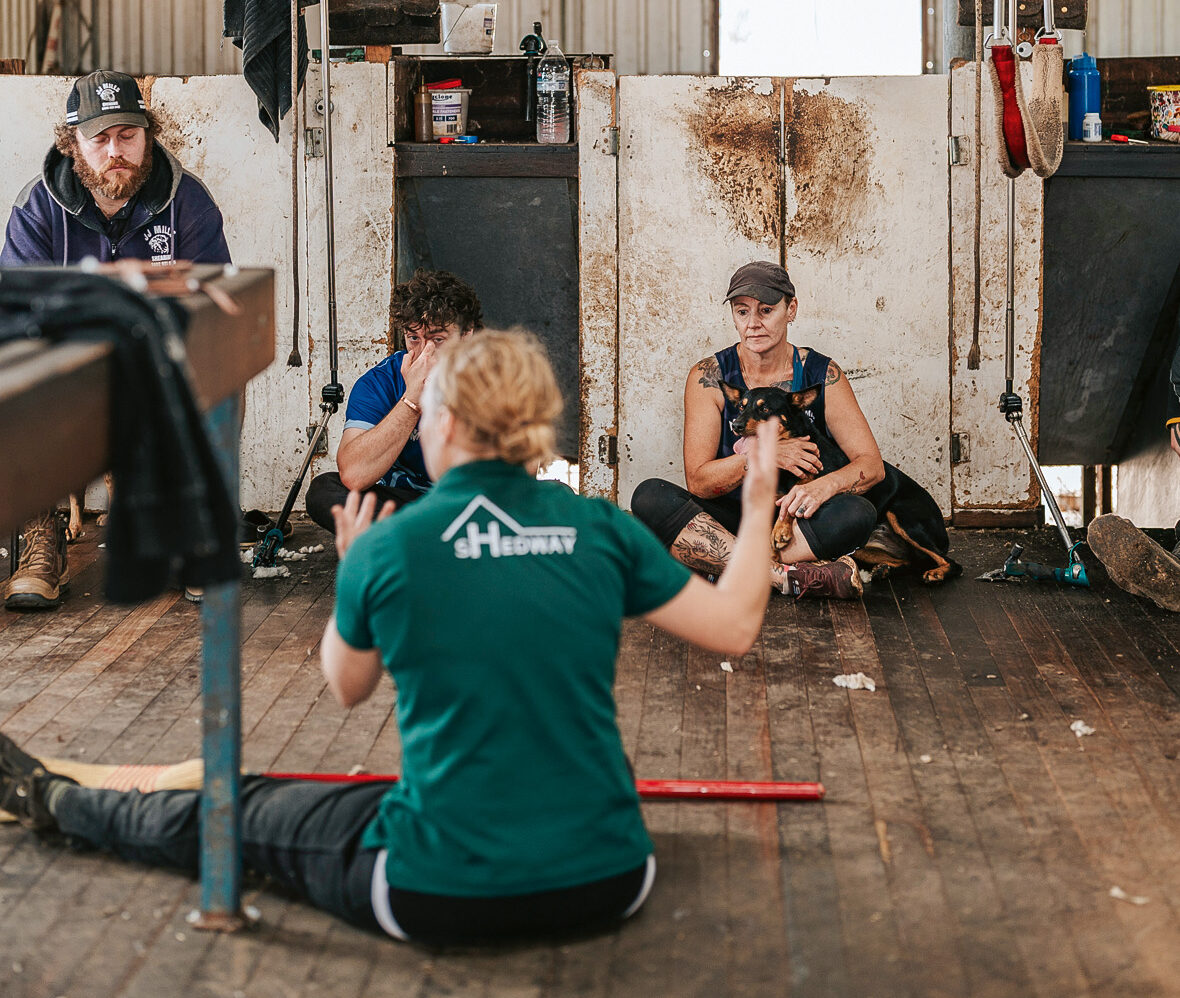
Carol is happiest when she’s working in the shed. “I have always loved the teamwork environment within a shearing shed. Everyone has their role, but even so, we all help each other out.”
This type of camaraderie is evident the day Carol works in the shed at Morongla. She will be doing a toolbox talk while the shearers are on lunchbreak; one of the core sessions she provides at sHedway, now a registered not-for-profit.
“Our toolbox talk is focused on general mental wellbeing,” Carol explains. “Lunchbreak is sacred for shearers, so I don’t like to take up too much of their time. But it’s a good chance while the music is off to sit them all down, talk to them about how sHedway can help, and give them the numbers to call should they, or people they know, need to talk to someone in a crisis.”
For 18 months, sHedway has been operating thanks to the support and donations from the shearing community. These donations help Carol and her team travel nationwide, undertaking toolbox talks and attending shows and conferences with their sHedway stall. Then, in May, Carol was announced the NSW/ACT winner of the 2025 AgriFutures Rural Women’s Award. A $15,000 Westpac grant is part of the award.
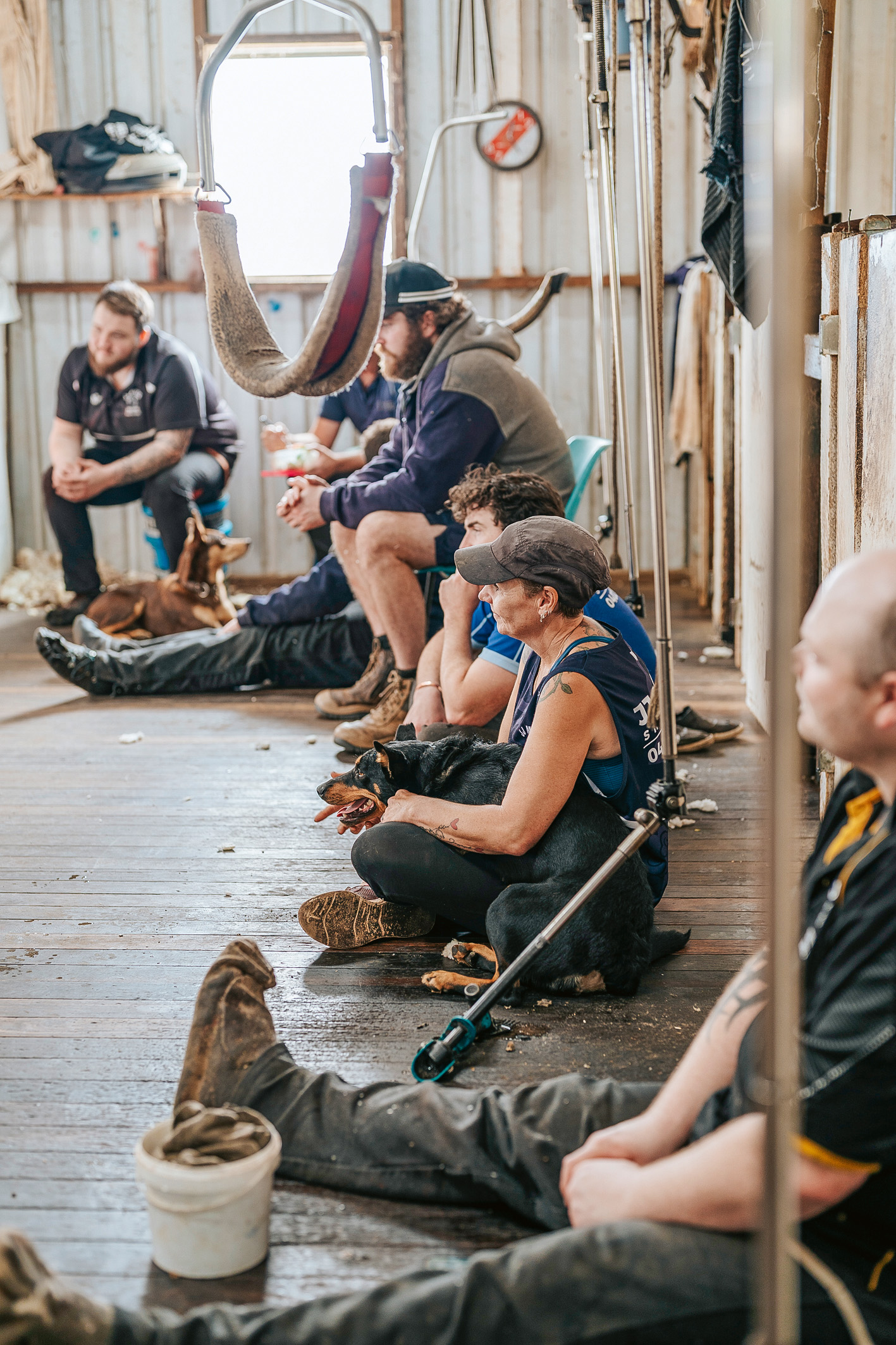
“It’s all such a whirlwind! I am just so blown away with the support we are receiving,” says Carol. “This funding will be put towards mental health training for the sHedway team, and more workshops and resources for the shearing industry.”
Back at the shed in Morongla, it’s midday and the shearing team have stopped for lunch. The music has been switched off and the shearers send their last shorn ewes down the chute. Carol has changed into a green polo shirt, the sHedway logo embroidered on the right-hand side. The shearing team sits in an arc on the floor while Carol sits at the front, a pile of sHedway brochures beside her. She talks about her experience as a mental health nurse and the importance of seeking help should they, or someone they know, need support in a crisis. After 15 minutes, Carol thanks the team and leaves a pile of sHedway stickers on the wool table. She changes back into her shearing singlet, leaving her sHedway cap perched on a wool bale at the entrance to the shearing shed.
Statistics from Beyond Blue state that nearly half of all people in Australia have experienced a mental health condition in their lifetime, with people in outer regional, remote and very remote areas of Australia facing more barriers to accessing health care than people living in major cities. This makes it harder for them to maintain good mental health.
At the end of the day, Carol hopes sHedway will be front of mind for anyone who works, owns or sets foot in a shearing shed. “The ultimate goal is for everyone in the sheds to look after their mental health the same way a shearer looks after their shearing gear,” she says. “We all know that if we turn up to work on Monday morning with a dirty gear pot full of rusty combs and blunt cutters, we’re going to have a pretty horrid day and not be able to do our job. And that’s the same for our mental health. We need to make our mental health a priority.”
Like this article? Consider supporting independent media by subscribing to Graziher, or giving a gift subscription to someone special.
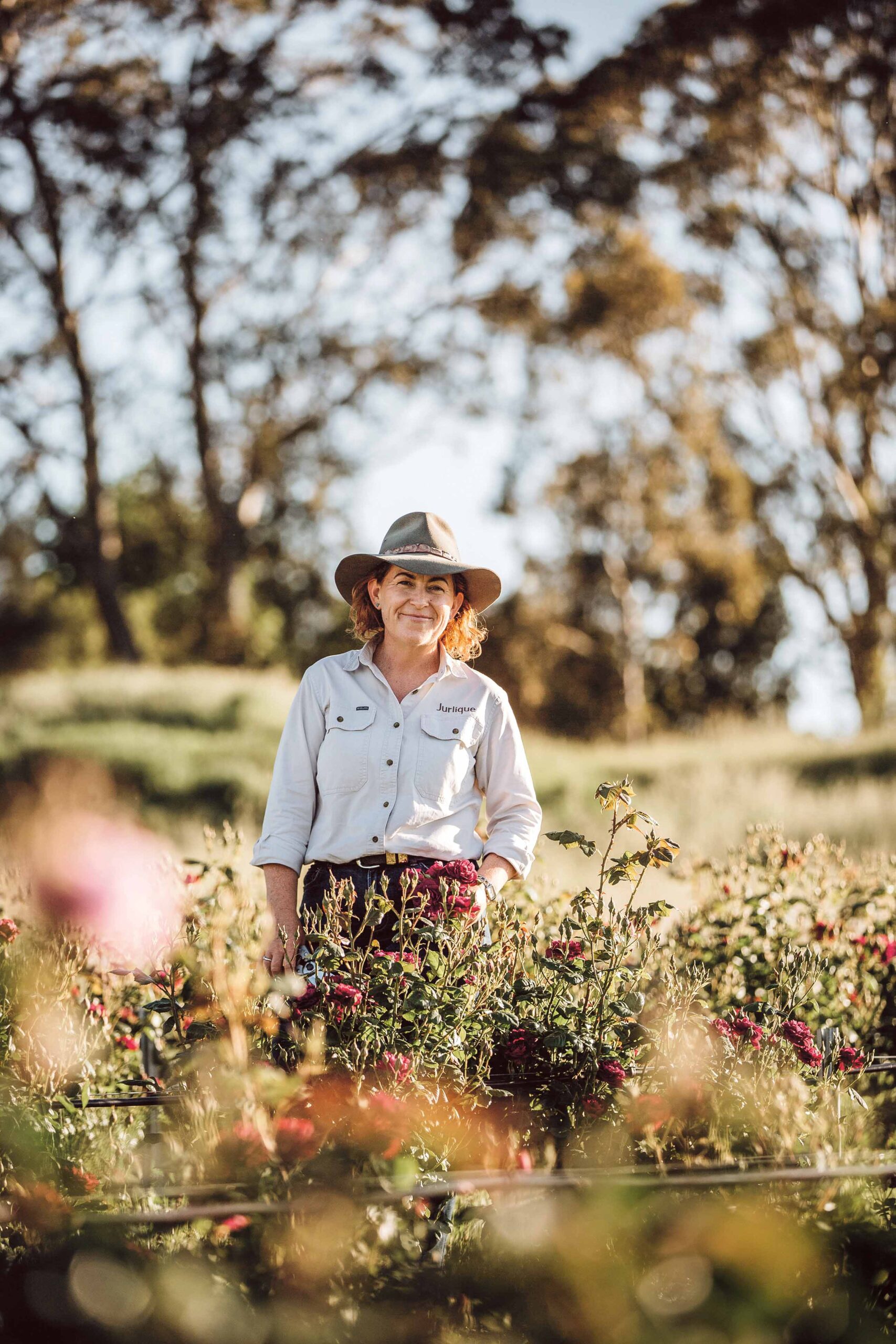
Raised on a dairy farm near Hahndorf, SA, farm manager Cherie Hutchinson has a deep love for the land she works on.
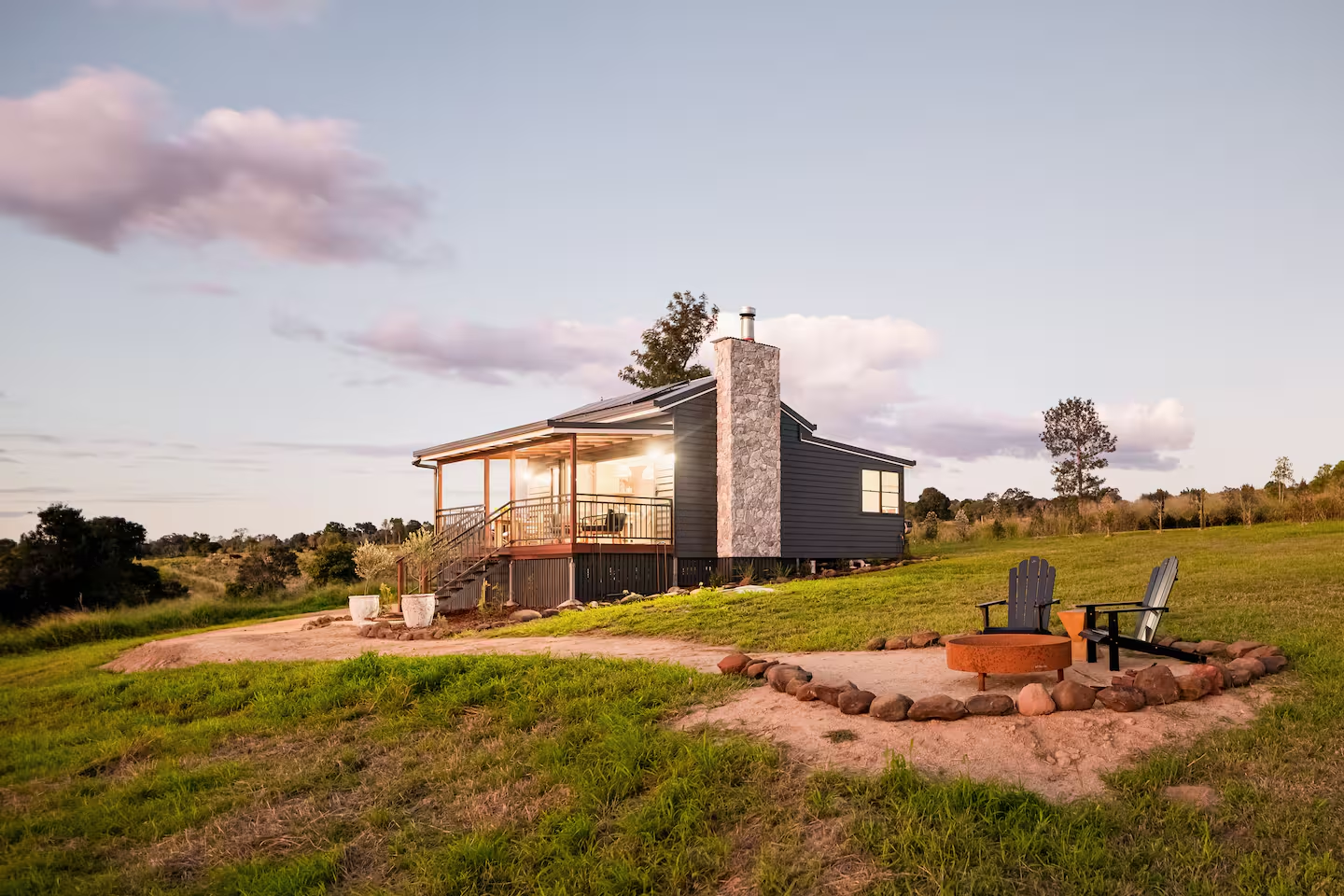
If you like the idea of a private plunge pool, mountain views and a glass of local verdelho, it’s time to start planning your Firebreak Farm escape.